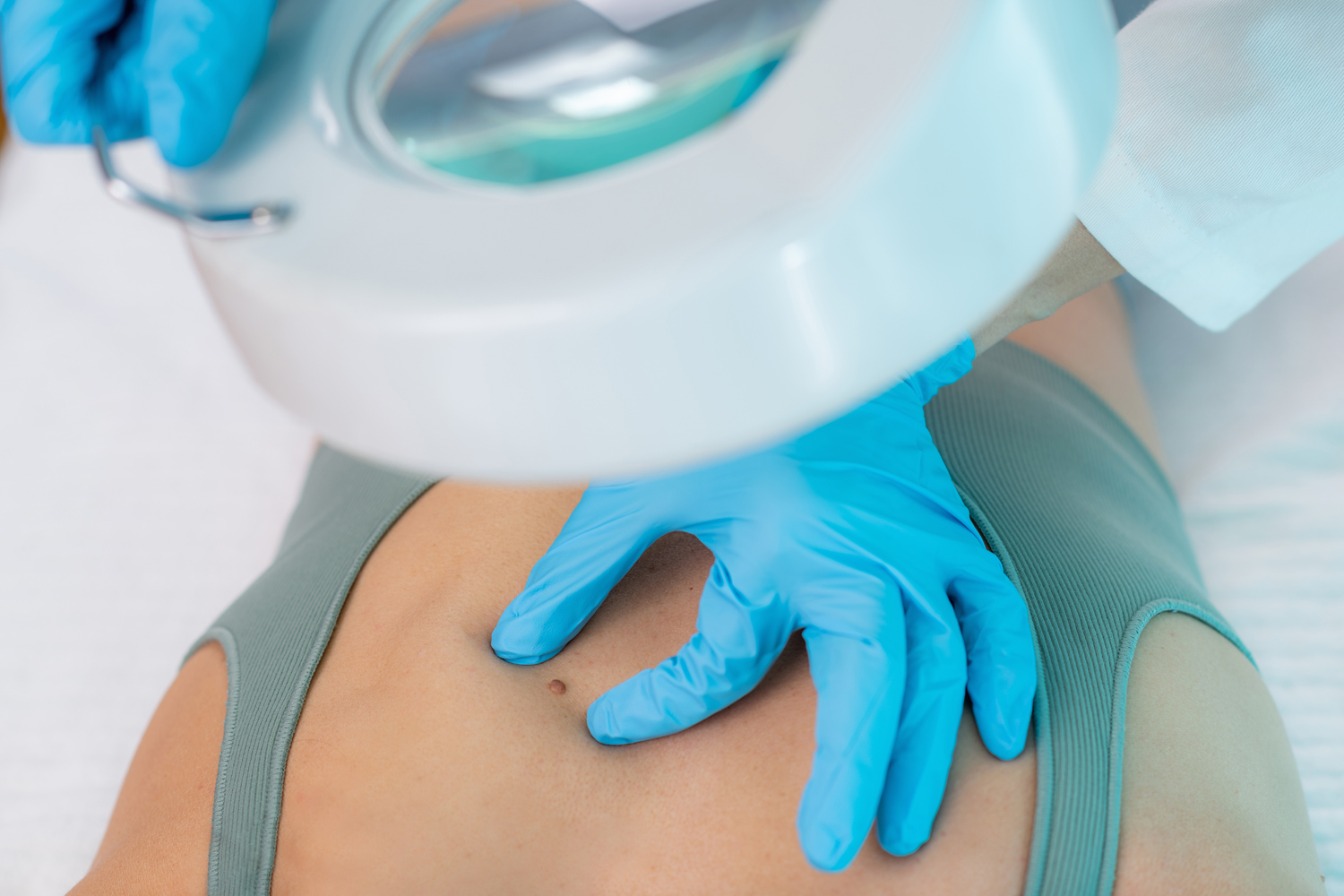Every week, the editors of Cancer Today magazine bring you the top news for cancer patients from around the internet. Stay up to date with the latest in cancer research and care by subscribing to our e-newsletter.
Deaths From Non-melanoma Skin Cancers Outpace Deaths from Melanoma
Melanoma is the skin cancer diagnosis that comes with the greatest risk of death, but non-melanoma skin cancers are now responsible for more deaths globally. That’s largely attributed to the higher prevalence of non-melanoma skin cancers, including basal cell carcinoma and squamous cell carcinoma. In findings presented at the European Academy of Dermatology and Neurology Congress 2023, there were 63,700 deaths worldwide from non-melanoma skin cancers in 2020, compared with 57,000 deaths from melanoma. Nearly 1.2 million people were diagnosed with non-melanoma skin cancer in 2020 and fewer than 325,000 were diagnosed with melanoma. “This study provides a fascinating insight into global skin cancer incidence and mortality rates,” Michele Green, a cosmetic dermatologist at Northwell Lenox Hill Hospital in New York City, told Medical News Today in an Oct. 10 article. She noted two contributing factors to the rising incidence of non-melanoma skin cancers: the depletion of the ozone layer which has provided protection from ultraviolet (UV) rays from the sun, and an aging population that represents more years of exposure to those UV rays that cause skin cancers. Green was not involved in the study.
Siblings of Cancer Patients Struggle to Find Support
When Ella was diagnosed with cancer at age 18, her older sister Kayla was there to support her through treatment and recovery. In an Oct. 10 story for NPR, Kayla said she found there were not services to help her deal with her own feelings of loss and grief. There are more than 85,000 adolescent and young adult cancers diagnosed in the U.S. each year, but support groups for siblings are less common than programs for patients and parents, according to the NPR article. Kristin Long, director of the Child & Family Health Lab at Boston University, calls siblings “shadow survivors.” She told NPR that hospital staff is often more focused on the needs of patients and parents, which leaves siblings, who typically come in for visits in the evening or on weekends, without needed support. For people like Kayla, even feeling a need for help can trigger guilt; she says she struggled to complain about problems like a knee injury or a work setback while her sister was dealing with cancer. “Siblings are in the midst of this huge family stressor,” Long said. “They have the urge to protect the people around them, especially their parents or other family members. And so they tend to keep this all inside. They try to reduce family stress by doing everything as perfectly as they can.” According to Long’s research, siblings of children with cancer may have an even higher risk of post-traumatic stress than the patients themselves.
AI Tool Guides Decisions During Brain Surgery
Scientists have developed an artificial intelligence (AI) tool that can analyze tumor samples to help guide surgeons to determine how much tissue to remove around a brain tumor during the surgery. According to an Oct. 11 article in the New York Times, the AI tool analyzes tumor DNA to characterize the tumor during surgery. In a study published online Oct. 11 in Nature, the tool generated reports in under 90 minutes, allowing surgeons to submit samples and receive results during operations that frequently last several hours. “It’s imperative that the tumor subtype is known at the time of surgery,” said Jeroen de Ridder, a researcher in the Center for Molecular Medicine at UMC Utrecht, a Dutch hospital, and an author of the study “What we have now uniquely enabled is to allow this very fine-grained, robust, detailed diagnosis to be performed already during the surgery.” Current practices involve examining the tumor under a microscope during surgery. Hospitals that have labs can also submit samples for genetic testing but may wait weeks for results. The AI program was tested in 25 live brains surgeries, mostly in children, and delivered 18 correct diagnoses in under 90 minutes each. In the remaining seven, the tool did not reach the needed confidence threshold to make a definitive decision. While the technology is promising, wider implementation may be challenging, requiring experts in bioinformatics, the New York Times article cautions.
Childhood Cancer Survivors Face Lifelong Health Concerns
A recent analysis found that 95% of childhood cancer survivors will be diagnosed with a significant health problem related to their cancer or treatment by age 45. Published Sept. 26 in JAMA, the review included 73 studies including 39 cohort studies that followed the participants over years. Health problems, which varied based on the type of cancer and treatments, included hormone issues and reproductive health challenges, cognitive impairment, and bone and muscle problems. According to coverage in the Washington Post, 85% of children who get cancer live five years or more after their diagnosis, which is up from 58% during the 1970s. But nearly one-third will have severe chronic health problems, including new cancers, often in areas of the body treated with radiation. In addition to the physical challenges, the study also highlighted concerns about mental health, including an elevated risk of suicide. “People who survive childhood cancer should receive lifelong care focused on health promotion and early detection of potential complications from their cancer treatment,” the researchers wrote.
Cancer Today magazine is free to cancer patients, survivors and caregivers who live in the U.S. Subscribe here to receive four issues per year.





